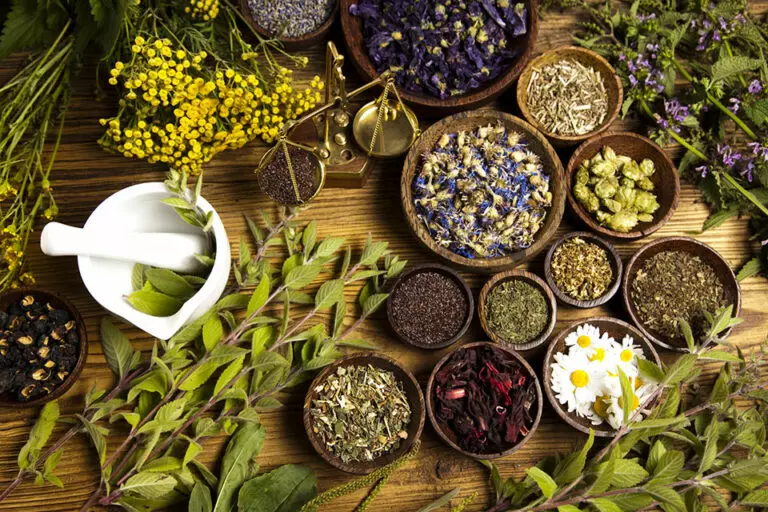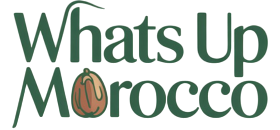
Imagine walking through the bustling souks of Marrakech, where the air is thick with the scent of exotic spices, fragrant herbs, and the promise of ancient healing traditions. Moroccan herbal remedies have been a cornerstone of traditional medicine for centuries, blending natural ingredients with cultural wisdom to promote health, balance, and vitality. Today, these age-old remedies are gaining recognition worldwide, appreciated not only for their cultural richness but also for their scientifically supported health benefits.
Whether you’re a wellness enthusiast, a curious traveler, or someone seeking natural alternatives to modern medicine, exploring Moroccan herbal remedies offers a fascinating window into the power of nature’s pharmacy. In this comprehensive guide, we’ll delve into the most potent herbs, their health benefits, how they’re used, and how you can incorporate them into your daily routine.
The Rich Heritage of Moroccan Herbal Medicine
Morocco’s diverse landscape—ranging from the Atlantic coast to the Atlas Mountains—provides a bounty of medicinal plants. For centuries, Berbers, Arabs, and Amazigh communities have relied on these herbs for everything from digestive health to skin care. The traditional Moroccan pharmacopoeia includes herbs like argan, henna, sage, rosemary, and rue, each carrying unique therapeutic properties.
The use of herbal remedies in Morocco is deeply rooted in cultural practices and spiritual beliefs, often intertwined with rituals and ceremonies. This holistic approach, emphasizing harmony between body and mind, has helped preserve these traditions and adapt them into modern herbal practices.
Top Moroccan Herbs and Their Amazing Health Benefits
Let’s explore some of the most celebrated Moroccan herbs, their health benefits, and ways to incorporate them into your wellness routine.
1. Argan (Argania spinosa)
Overview: Often called “liquid gold,” argan oil is derived from the kernels of the argan tree native to Morocco. Rich in antioxidants, vitamin E, and essential fatty acids, argan oil is renowned for its skin, hair, and health benefits.
Health Benefits:
- Skin Health: Moisturizes and nourishes skin, reducing signs of aging. Its antioxidant properties combat free radicals, which can cause skin damage.
- Heart Health: The monounsaturated fats help lower bad cholesterol levels.
- Anti-Inflammatory: Contains compounds that may reduce inflammation and pain.
Usage: Besides topical application, consuming a teaspoon of high-quality argan oil can support internal health, such as lowering cholesterol and boosting skin health. For more insights, health organizations highlight the importance of healthy fats in cardiovascular health.
2. Henna (Lawsonia inermis)
Overview: Known for its vibrant dyes, henna also boasts medicinal properties. Traditionally used for skin, hair conditioning, and treating skin ailments.
Health Benefits:
- Antimicrobial: Combats bacteria and fungi that cause skin infections.
- Anti-Inflammatory: Soothes skin irritations and minor wounds.
- Hair Nourishment: Strengthens hair and promotes scalp health.
Usage: Applying henna paste on the skin or hair can serve both aesthetic and medicinal purposes. Recent studies highlight its potential in wound healing and antimicrobial activity.
3. Sage (Salvia officinalis)
Overview: A staple in Moroccan kitchens and medicine cabinets, sage is valued for its aromatic leaves and medicinal virtues.
Health Benefits:
- Digestive Aid: Eases indigestion and bloating.
- Cognitive Support: Some research suggests sage may improve memory and brain function.
- Antioxidant & Anti-Inflammatory: Protects cells from oxidative stress and reduces inflammation.
Usage: Brew sage leaves into a tea or use oil as a supplement. Clinical trials underline its role in cognitive health, especially in age-related decline.
4. Rosemary (Rosmarinus officinalis)
Overview: With its distinctive aroma, rosemary has been used for centuries to boost memory and circulation.
Health Benefits:
- Memory and Brain Function: Enhances cognitive performance.
- Antioxidant: Protects against oxidative stress.
- Anti-Inflammatory & Circulatory: Improves blood flow and reduces inflammation.
Usage: Incorporate fresh or dried rosemary into meals or infuse in oils for topical use. Research supports rosemary’s role in neuroprotection.
5. Rue (Ruta graveolens)
Overview: A potent herb with a long history in Moroccan folk medicine, rue is used cautiously due to its potency.
Health Benefits:
- Digestive Support: Eases stomach discomfort.
- Antimicrobial: Fights certain bacteria and fungi.
- Menstrual Regulation: Traditionally used to regulate menstrual cycles.
Usage: Typically prepared as an infusion or extract. However, due to its toxicity in high doses, consultation with a healthcare provider is essential.
6. Mastic (Pistacia lentiscus)
Overview: While more commonly associated with Mediterranean regions, mastic resin is used in Moroccan herbal remedies for oral health.
Health Benefits:
- Dental Health: Reduces plaque and fights cavities.
- Digestive Aid: Eases indigestion and ulcers.
- Anti-Inflammatory: Soothes sore throats and mouth ulcers.
Usage: Chewing mastic resin or using it as a mouthwash can improve oral hygiene.
How Moroccan Herbal Remedies Work: An Inside Look
The efficacy of these herbs is rooted in their phytochemicals—plant compounds that produce medicinal effects. For example, antioxidants such as polyphenols combat oxidative stress, which is linked to aging and chronic diseases. Anti-inflammatory compounds help reduce inflammation, a common denominator in many health conditions.
Modern science increasingly supports traditional uses. For instance, research published in peer-reviewed journals confirms the antimicrobial properties of henna and the neuroprotective effects of rosemary. The World Health Organization (WHO) emphasizes the importance of integrating traditional medicine with modern healthcare, acknowledging the value of herbal remedies when used responsibly.
Incorporating Moroccan Herbal Remedies into Your Routine
Adding Moroccan herbs to your daily life doesn’t require a complete lifestyle overhaul. Here are actionable tips:
- Herbal Teas: Brew sage, rosemary, or a blend of Moroccan herbs for a soothing beverage.
- Cooking: Use argan oil in salads, couscous, or grilled vegetables to enjoy its health benefits.
- Topical Applications: Use argan or rosemary oil for skin and hair care.
- Supplements: Look for high-quality herbal extracts or capsules, but always consult a healthcare provider first.
- Herb Gardens: Grow herbs like sage, rosemary, and rue at home for fresh, organic remedies.
Remember, moderation is key. Some herbs, such as rue, can be toxic in large quantities, so educate yourself or seek expert advice before use.
Comparing Moroccan Herbal Remedies: A Quick Guide
| Herb | Main Benefits | Common Uses | Scientific Evidence | Caution |
|---|---|---|---|---|
| Argan | Skin, heart, anti-inflammatory | Oil for skin, internal consumption | Strong support from studies | High-quality sourcing needed |
| Henna | Antimicrobial, skin healing | Skin dye, wound healing | Laboratory support | Allergic reactions possible |
| Sage | Digestive, cognitive, antioxidant | Tea, supplements | Multiple clinical trials | Pregnant women should consult |
| Rosemary | Brain, circulation, antioxidant | Culinary, oils | Supported by neuroscience research | Use in moderation |
| Rue | Digestive, menstrual, antimicrobial | Infusions, extracts | Toxic in high doses | Potential toxicity |
| Mastic | Oral health, digestion | Chewing, mouthwash | Supported by dental studies | Allergic reactions possible |
Frequently Asked Questions (FAQs)
Q1: Are Moroccan herbal remedies safe for everyone?
Most are safe when used appropriately, but some herbs like rue can be toxic if misused. Always consult a healthcare professional, especially if pregnant, nursing, or on medication.
Q2: Can I buy authentic Moroccan herbs online?
Yes, but ensure you purchase from reputable sources that guarantee organic and authentic products. Look for certifications and reviews.
Q3: How long does it take to see health benefits?
It varies depending on the herb and the condition. Some, like sage tea, may offer quick relief for digestion, while others, like argan oil for skin, require consistent use over weeks.
Q4: Are Moroccan herbal remedies better than modern medicine?
They complement modern treatments and are particularly effective for preventive care and mild conditions. For serious health issues, always follow your healthcare provider’s advice.
Q5: Can herbal remedies replace pharmaceuticals?
Not always. They can be part of an integrative approach but should not replace prescribed medications without professional guidance.
The Cultural and Scientific Significance of Moroccan Herbal Medicine
Moroccan herbal remedies are more than just natural cures—they are a testament to centuries of cultural resilience, spiritual practices, and scientific curiosity. Recent research continues to validate many traditional claims, bridging the gap between ancient wisdom and modern science. For example, the antioxidant properties of argan oil and the antimicrobial activity of henna are now backed by laboratory studies, offering a scientific foundation to age-old practices.
The World Health Organization advocates for the integration of traditional medicines into national health systems, recognizing their role in holistic health. As global interest in natural health solutions grows, Moroccan herbs stand out as a rich resource of wellness, rooted in history but moving confidently into the future.
Final Thoughts: Embrace Nature’s Ancient Wisdom
Exploring Moroccan herbal remedies is like opening a treasure chest filled with nature’s healing gifts. From the nourishing richness of argan oil to the antimicrobial prowess of henna, these herbs offer a harmonious balance of tradition and science. Incorporating them thoughtfully into your health routine can enhance well-being, deepen cultural understanding, and reconnect you with the natural world.
Remember, the journey toward health is personal and ongoing. Start small—perhaps with a cup of sage tea or a splash of argan oil—and observe how your body responds. Educate yourself, consult experts, and embrace the wisdom of Moroccan traditions as a complement to your modern lifestyle.
In the end, nature has been our healer for millennia. By respecting and harnessing its gifts, we can nurture our bodies and minds with the timeless power of Moroccan herbs.
Next steps? Consider exploring local markets, reputable online stores, or even visiting Morocco to experience firsthand the vibrant herbal traditions. Keep an open mind, stay curious, and let nature guide your path to health.
